 |
 |
|||||
| |
|
|
|
|
|
|
Inspirational People and their Quotes
|
|
Rollo May |
|
||
Carlos Castaneda
1931 - 1999

The Teachings of don Juan Matus
Carlos Castaneda was a college student in the early sixties, studying anthropology. The government gave lots of funding at the time for the college students to study Native Americans, before their profound, historic knowledge died off. They were given funds to record all that they could. Carlos Castaneda met don Juan Matus. A Yaqui shaman from Mexico. He was instilled with a gift of what reality is, according to ancient handed down knowledge. I highly suggest reading his books. His website is:
"Nothing in this world is a gift. Whatever has to be learned, must be learned the hard way."
"Power rests on the kind of knowledge that one holds. What is the sense of knowing things that are senseless? They will not prepare us for our unavoidable encounter with the unknown."
"To be angry at people, means that one considers their acts to be important. It is imperative to cease to feel that way. The acts of men cannot be important enough to offset our only viable alternative: our unchangeable encounter with infinity."
"For a warrior, to be inaccessible means that he touches the world around him sparingly. And above all, he deliberately avoids exhausting himself and others. He doesn't use and squeeze people until they have shriveled to nothing, especially the people he loves. Once a man worries, he clings to anything out of desperation: and once he clings he is bound to get exhausted or to exhaust whomever or whatever he is clinging to. To worry is to become accessible, unwittingly accessible.
"Acts have power. Especially when the warrior acting knows that those last acts are his last battle. There is a strange consuming happiness in acting with the full knowledge that whatever he is doing may very well be his last act on earth."
"Self importance is man's greatest enemy. What weakens him is feeling offended by the deeds and misdeeds of his fellow men. Self-importance requires that one spend most of one's life offended by something or someone."
"In the universe there is an immeasurable, indescribable force which shamans call intent, and absolutely everything that exists in the entire cosmos is attached to intent by a connecting link. Warriors are concerned with discussing, understanding, and employing that connecting link. They are especially concerned with cleaning it of the numbing effects brought about by the ordinary concerns of their everyday lives. Shamanism at this level can be defined as the procedure of cleaning one's connecting link to intent."
"The humbleness of a warrior is not the humbleness of the beggar. The warrior lowers his head to no one, but at the same time, he doesn't permit anyone to lower his head to him. The beggar on the other hand, falls to his knees at the drop of a hat and scrapes the floor for anyone he deems to be higher; but at the same time, he demands that someone lower than him scrape the floor for him."
"Whenever internal dialogue stops, the world collapses, and extraordinary facets of ourselves surface, as though they had been kept heavily guarded by our words."
Carl Gustave Jung
1875-1961

The Rebellious Genious Student of Sigmund Freuds'
Carl Jung was a psychology student of Sigmund Freuds'. It is a fact that Sigmund and Carl disagreed on most points. The one point that they strongly agreed upon though, was the fact that "There are two kinds of people in society. There are artists, and there are people." Carl Jung opened up new dimensions of philosophy, such as the symbolism in dreams, leading us to the truths in our lives. The way he puts it, is that God is showing us our destiny through our dreams, and that we should pay close attention to them. This is also the philosophy of the actor who played "Billy Jack" in the 70's Jack Laughlin.
"He who is in possession of their life, is in possession of their story."
Freud said that the goal of therapy was to make the unconscious conscious. He certainly made that the goal of his work as a theorist. And yet he makes the unconscious sound very unpleasant, to say the least: It is a cauldron of seething desires, a bottomless pit of perverse and incestuous cravings, a burial ground for frightening experiences which nevertheless come back to haunt us. Frankly, it doesn't sound like anything I'd like to make conscious!
A younger colleague of his, Carl Jung, was to make the exploration of this "inner space" his life's work. He went equipped with a background in Freudian theory, of course, and with an apparently inexhaustible knowledge of mythology, religion, and philosophy. Jung was especially knowledgeable in the symbolism of complex mystical traditions such as Gnosticism, Alchemy, Kabala, and similar traditions in Hinduism and Buddhism. If anyone could make sense of the unconscious and its habit of revealing itself only in symbolic form, it would be Carl Jung.
He had, in addition, a capacity for very lucid dreaming and occasional visions. In the fall of 1913, he had a vision of a "monstrous flood" engulfing most of Europe and lapping at the mountains of his native Switzerland. He saw thousands of people drowning and civilization crumbling. Then, the waters turned into blood. This vision was followed, in the next few weeks, by dreams of eternal winters and rivers of blood. He was afraid that he was becoming psychotic.
But on August 1 of that year, World War I began. Jung felt that there had been a connection, somehow, between himself as an individual and humanity in general that could not be explained away. From then until 1928, he was to go through a rather painful process of self-exploration that formed the basis of all of his later theorizing.
He carefully recorded his dreams, fantasies, and visions, and drew, painted, and sculpted them as well. He found that his experiences tended to form themselves into persons, beginning with a wise old man and his companion, a little girl. The wise old man evolved, over a number of dreams, into a sort of spiritual guru. The little girl became "anima," the feminine soul, who served as his main medium of communication with the deeper aspects of his unconscious.
A leathery brown dwarf would show up guarding the entrance to the unconscious. He was "the shadow," a primitive companion for Jung's ego. Jung dreamt that he and the dwarf killed a beautiful blond youth, whom he called Siegfried. For Jung, this represented a warning about the dangers of the worship of glory and heroism which would soon cause so much sorrow all over Europe -- and a warning about the dangers of some of his own tendencies towards hero-worship, of Sigmund Freud!
Jung dreamt a great deal about the dead, the land of the dead, and the rising of the dead. These represented the unconscious itself -- not the "little" personal unconscious that Freud made such a big deal out of, but a new collective unconscious of humanity itself, an unconscious that could contain all the dead, not just our personal ghosts. Jung began to see the mentally ill as people who are haunted by these ghosts, in an age where no-one is supposed to even believe in them. If we could only recapture our mythologies, we would understand these ghosts, become comfortable with the dead, and heal our mental illnesses.
Critics have suggested that Jung was, very simply, ill himself when all this happened. But Jung felt that, if you want to understand the jungle, you can't be content just to sail back and forth near the shore. You've got to get into it, no matter how strange and frightening it might seem.
James Douglas Morrison
1943-1971

Poet / Politician / Rock star
Jim Morrison was a brilliant individual. He was reading a book or two a day since he was very young. His range of research was very broad, studying all of philosophy around the globe.
Interview With Jim Morrison
Lizzie James: I think fans of The Doors see you as a savior, the leader who'll set them all free. How do you feel about that? It's kind of a heavy burden, isn't it?
Jim Morrison: It's absurd. How can I set free anyone who doesn't have the guts to stand up alone and declare his own freedom? I think it's a lie--people claim they want to be free--everybody insists that freedom is what they want the most, the most sacred and precious thing a man can possess. But that's bullshit! People are terrified to be set free-they hold on to their chains. They fight anyone who tries to break those chains. It's their security....How can they expect me or anyone to set them free if they don't really want to be free?
Lizzie: Why do you think people fear freedom?
Jim: I think people resist freedom because they're afraid of the unknown. But it's ironic ... That unknown was once very well known. It's where our souls belong ... The only solution is to confront them -- confront yourself -- with the greatest fear imaginable. Expose yourself to your deepest fear. After that, fear has no power, and fear of freedom shrinks and vanishes. You are free.
Lizzie: What do mean when you say "freedom"?
Jim: There are different kinds of freedom -- there's a lot of misunderstanding ... The most important kind of freedom is to be what you really are. You trade in your reality for a role. You trade in your senses for an act. You give up your ability to feel and in exchange, put on a mask. There can't be any large-scale revolution until there's a personal revolution, on an individual level. It's got to happen inside first. You can take away a man's political freedom and you won't hurt him -- unless you take away his freedom to feel. That can destroy him.
Lizzie: But how can anyone else have the power to take away from your freedom to feel?
Jim: Some people surrender their freedom willingly--but others are are forced to surrender it. Imprisonment begins with birth. Society, parents; they refuse to allow you to keep the freedom you are born with. There are subtle ways to punish a person for daring to feel. You see that everyone around you has destroyed his true feeling nature. You imitate what you see.
Lizzie: Are you saying that we are, in effect, brought up to defend and perpetuate a society that deprives people of the freedom to feel?
Jim: Sure ... teachers,religious leaders-even friends, or so-called friends -- take over where the parents leave off. They demand that we feel the only feelings they want and expect from us. They demand all the time that we preform feelings for them. We're like actors-turned loose in this world to wander in search of a phantom ... endlessly searching for a half-forgotten shadow of our lost reality. When others demand that we become the people they want us to be, they force us to destroy the person we really are. It's a subtle kind of murder ... the most loving parents and relatives commit this murder with smiles on their faces.
Lizzie: Do you think it's possible for an individual to free himself from these repressive forces on his own -- all alone?
Jim: That kind of freedom can't be granted. Nobody can win it for you. You have to do it on your own. If you look to somebody else to do it for you -- somebody outside yourself -- you're still depending on others. You're still vulnerable to those repressive,evil outside forces, too.
Lizzie: But isn't it possible for people who want that freedom to unite -- to combine their strength, maybe just to strengthen each other? It must be possible.
Jim: Friends can help each other. A true friend is someone who lets you have total freedom to be yourself-and especially to feel. Or not feel. Whatever you happen to be feeling at the moment is fine with them. That's what real love amounts to -- letting a person be what he really is ... Most people love you for who you pretend to be ... To keep their love, you keep pretending -- preforming. You get to love your pretense ... It's true, we're locked in an image, an act -- and the sad thing is, people get so used to their image -- they grow attached to their masks. They love their chains. They forgot all about who they really are. And if you try to remind them, they hate you for it -- they feel like you're trying to steal their most precious possession.
Lizzie: It's ironic -- it's sad. Can't they see that what you're trying to show them is the way to freedom?
Jim: Most people have no idea what they're missing. Or society places a supreme value on control -- hiding what you feel. Our culture mocks "primitive cultures" and prides itself on supression of natural instincts and impulses.
Lizze: In some of your poetry, you openly admire and praise primitive people -- Indians, for instance. Do you mean that it's not human beings in general but our particular society that's flawed and destructive?
Jim: Look at how other cultures live --peacefully, in harmony with the earth, the forest -- animals. They don't build war machines and invest millions of dollars in attacking other countries whose political ideals don't happen to agree with their own.
Lizze: We live in a sick society.
Jim: It's true ... and part of the disease is not being aware that we're diseased ... Our society has too much to hold on to,and value -- freedom ends up at the bottom of the list.
Lizze: But isn't there something an artist con do? If you didn't feel you, as an artist, could accomplish something, how could you go on?
Jim: I offer images -- I conjure memories of freedom that can still be reached -- like The Doors, right? But we can only open the doors -- we can't drag people through. I can't free them unless they want to be free -- more than anything else ... Maybe primitive people have less bullshit to let go of, to give up. A person has to be willing to give up everything -- not just wealth. All the bullshit he's been taught -- all society brainwashing. You have to let go of all that to get to the other side. Most people aren't willing to do that.
Henry David Thoreau
1817-1862

A Recorder of Life
Henry David Thoreau's life can be described as two major accomplishments: he lived life on his own terms to a remarkable degree, and he wrote it all down. Thoreau did not write stories -- he wrote a little poetry, but essentially he was a writer of essays. His work usually began with journal entries; he then built essays from his journal, and later combined essays into books. The work of assembling essays into books has continued, and much of his work has been published posthumously. Two new books, published in 1993 and 1999, include material never before available.
Because so much of an essay consists of an author's personal observations and opinions, in any good essay we come to feel that we know the author. If you read only short selections of Thoreau, he can appear to be a whining malcontent, but if you stick with him a bit longer, this impression does not last. Thoreau cared deeply about the problems of his time and the people around him, and as this sinks in, many people start to feel they have a lot in common with Henry. Part of the magic of Walden is that it's not just a story; it's a real person in a real place. You want to step back in time and drop in for a visit at the cabin, feeling absolutely certain that you would be welcome, and that you would have a good time. Of course you can't do that, but reading the book comes darn close, and you come to think of Henry Thoreau as a friend.
"I went to the woods because I wished to live deliberately, to front only the essential facts of life, and see if I could not learn what it had to teach, and not, when I came to die, discover that I had not lived."
John Ruskin
1819-1900
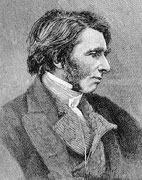
Artist / Scientist / Poet / Environmentalist / Philosopher / Art Critic
John Ruskin, the greatest Victorian bar Victoria, was an artist, scientist, poet, environmentalist, philosopher, and, importantly here, the preeminent art critic of his time. He provided the impetus that gained respectability for the Pre-Raphaelites. Ruskin's letter to The Times in 1851, supporting the much-derided Pre-Raphaelites for their naturalism and truth to nature, marked a turning point in their perception by the public. In a second letter, he wrote that the Pre-Raphaelites might "lay the foundation of a school of art nobler than the world has seen for 300 years."
When, after this, Ruskin met the Pre-Raphaelites, he encouraged them in their ideals, acting as tutor, mentor, and generous supporter to Rossetti, Millais and Holman Hunt, as well as later artists in a similar spirit such as John Brett and John William Inchbold. He was a long-time friend of the children's illustrator Kate Greenaway, and also of the bird-painter H. S. Marks.
Ruskin taught Pre-Raphaelite style drawing at the Working Men's College in London for some years, enlisting Rossetti to teach figure and watercolour painting, and afterwards Ford Madox Brown to fill the same position. Afterwards, he left London, becoming Slade Professor of Art at Oxford (where there is an art college named after him) and then removing to the Lake District where he helped to start the Environmental Movement.
"The highest reward for a person's toil is not what they get for it, but for what they become by it."
Lao-Tzu
Sixth Century B.C.
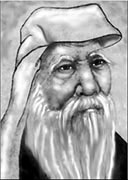
The Father of Taoism
Although ascetics and hermits such as Shen Tao (who advocated that one 'abandon knowledge and discard self') first wrote of the 'Tao' it is with the sixth century B.C. philosopher Lao Tzu (or 'Old Sage' -- born Li Erh) that the philosophy of Taoism really began. Some scholars believe was a slightly older contemporary of Confucius (Kung-Fu Tzu, born Chiu Chung-Ni). Other scholars feel that the Tao Te Ching, is really a compilation of paradoxical poems written by several Taoists using the pen-name, Lao Tzu. There is also a close association between Lao Tzu and the legendary Yellow Emperor, Huang-ti. According to legend Lao Tzu was keeper of the archives at the imperial court. When he was eighty years old he set out for the western border of China, toward what is now Tibet, saddened and disillusioned that men were unwilling to follow the path to natural goodness. At the border (Hank Pass), a guard, Yin Xi (Yin Hsi), asked Lao Tsu to record his teachings before he left. He then composed in 5,000 characters the Tao Te Ching (The Way and Its Power).
"A journey of a thousand miles must begin with a single step."
"Since the world points up beauty as such, There is ugliness too, If goodness is taken as goodness, Wickedness enters as well. For is and is-not come together; Hard and easy are complementary; Long and short are relative; High and low are comparative; Pitch and sound make harmony; Before and after are a sequence."
Rollo May
1909-1994

American Existential Psychologist
Rollo May is the best known American existential psychologist. Much of his thinking can be understood by reading about existentialism in general, and the overlap between his ideas and the ideas of Ludwig Binswanger is great. Nevertheless, he is a little off of the mainstream in that he was more influenced by American humanism than the Europeans, and more interested in reconciling existential psychology with other approaches, especially Freud's.
May uses some traditional existential terms slightly differently than others, and invents new words for some of existentialism's old ideas. Destiny, for example, is roughly the same as thrownness combined with fallenness. It is that part of our lives that is determined for us, our raw materials, if you like, for the project of creating our lives. Another example is the word courage, which he uses more often that the traditional term authenticity to mean facing one's anxiety and rising above it.
He is also the only existential psychologist I'm aware of who discusses certain "stages" (not in the strict Freudian sense, of course) of development:
Innocence -- the pre-egoic, pre-self-conscious stage of the infant. The innocent is premoral, i.e. is neither bad nor good. Like a wild animal who kills to eat, the innocent is only doing what he or she must do. But an innocent does have a degree of will in the sense of a drive to fulfill their needs!
Rebellion -- the childhood and adolescent stage of developing one's ego or self-consciousness by means of contrast with adults, from the "no" of the two year old to the "no way" of the teenager. The rebellious person wants freedom, but has as yet no full understanding of the responsibility that goes with it. The teenager may want to spend their allowance in any way they choose -- yet they still expect the parent to provide the money, and will complain about unfairness if they don't get it!
Ordinary -- the normal adult ego, conventional and a little boring, perhaps. They have learned responsibility, but find it too demanding, and so seek refuge in conformity and traditional values.
Creative -- the authentic adult, the existential stage, beyond ego and self-actualizing. This is the person who, accepting destiny, faces anxiety with courage! These are not stages in the traditional sense. A child may certainly be innocent, ordinary or creative at times; An adult may be rebellious. The only attachments to certain ages is in terms of salience: Rebelliousness stands out in the two year old and the teenager! On the other hand, he is every bit as interested in anxiety as any existentialist. His first book, The Meaning of Anxiety, was based on his doctoral dissertation, which in turn was based on his reading of Kierkegaard. His definition of anxiety is "the apprehension cued off by a threat to some value which the individual holds essential to his existence as a self" (1967, p. 72). While not "pure" existentialism, it does obviously include fear of death or "nothingness." Later, he quotes Kierkegaard: "Anxiety is the dizziness of freedom.""
Carl Sagan
1934-1996
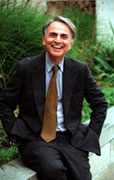
Passionate Scientist
Sagan was an avid proponent of space exploration who contributed to most of the unmanned missions that explored our solar system. These included the Mariner 9 spacecraft, which produced the first detailed images showing that Mars is currently a desolate, cratered world; the Viking orbiters and landers, which searched (unsuccessfully) for life on the surface of the Red Planet; the Pioneer and Voyager probes that provided the first surveys of the outer planets and their moons; and the Galileo craft, which is currently sending back extremely detailed images of Jupiter and its giant satellites.
Sagan's work transformed our understanding of Earth's place in the cosmos. He helped to determine that the surface of Venus--once considered a possibly hospitable place--is hellishly hot, fried by a greenhouse effect run amok. Yet he also showed that the universe abounds with intricate, carbon-based chemicals that could be the precursors of other living things. And Sagan collected evidence that Saturn's moon Titan has an atmosphere containing organic molecules similar to the building blocks of life. That work was stunningly confirmed by Voyagers 1 and 2 in the 1980s.
Throughout his career, Sagan argued for the importance of searching for signs of extraterrestrial life. At Cornell, he pioneered the new field of exobiology--the study of possible alien biochemistry and life forms. He conceived a message plaque, containing a greeting from the people of Earth, which adorns the Pioneer 10 spacecraft, now headed into interstellar space (a more sophisticated, engraved phonograph record adorned the two Voyager craft, also on their way to the stars). Along with various collaborators, including Paul Horowitz of Harvard University, Sagan supported projects that use radio telescopes to listen for signals from possible intelligent alien civilizations.
But perhaps Sagan's greatest skill was his ability to communicate with individuals here on Earth. Through a series of books, magazine articles and television shows, he reached beyond the scientific community to convey the excitement of his research to the lay public. (His writing graced the pages of Scientific American; three of his articles are available from this page.) Sagan's concerns ranged far and wide, from the effects of nuclear war to the evolution of the mind to the intellectual erosion brought about by pseudoscience (the subject of his most recent book, The Demon-Haunted World). His television series Cosmos reached an estimated audience of 500 million people; his novel Contact is was made into a movie that was released a few years ago. Sagan also co-founded the Planetary Society, the largest space-interest group in the world.
"We are like the inhabitants of an isolated valley in New Guinea who communicate with societies in neighboring valleys (quite different societies, I might add) by runner and by drum. When asked how a very advanced society will communicate, they might guess by an extremely rapid runner or by an improbably large drum. They might not guess a technology beyond their ken. And yet, all the while, a vast international cable and radio traffic passes over them, around them, and through them...
"We will listen for the interstellar drums, but we will miss the interstellar cables. We are likely to receive our first messages from the drummers of the neighboring galactic valleys--from civilizations only somewhat in our future. The civilizations vastly more advanced than we, will be, for a long time, remote both in distance and in accessibility. At a future time of vigorous interstellar radio traffic, the very advanced civilizations may be, for us, still insubstantial legends."
John Lennon
1940-1980
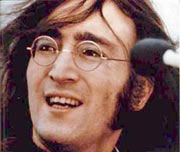
Poet / Musician / Rock star / Philosopher
John Lennon was a brilliant, creative person. He was a member of the group "The Beatles."
"You make your own dream. That's the Beatles' story, isn't it? That's Yoko's story . That's what I'm saying now. Produce your own dream. If you want to save Peru, go save Peru. It's quite possible to do anything, but not to put it on the leaders and the parking meters. Don't expect Jimmy Carter or Ronald Reagan or John Lennon or Yoko Ono or Bob Dylan or Jesus Christ to come and do it for you. You have to do it yourself. That's what the great masters and mistresses have been saying ever since time began. They can point the way, leave signposts and little instructions in various books that are now called holy and worshiped for the cover of the book and not for what it says, but the instructions are all there for all to see, have always been and always will be. There's nothing new under the sun. All the roads lead to Rome. And people cannot provide it for you. I can't wake you up. You can wake you up. I can't cure you. You can cure you."
"You're just left with yourself all the time, whatever you do anyway. You've got to get down to your own God in your own temple. It's all down to you, mate."
"But nobody's perfect, etc., etc. Whether it's Janov or Erhardt or Maharishi or a Beatle. That doesn't take away from their message. It's like learning how to swim. The swimming is fine. But forget about the teacher. If the Beatles had a message, it was that. With the Beatles, the records are the point, not the Beatles as individuals. You don't need the package, just as you don't need the Christian package or the Marxist package to get the message. People always got the image I was an anti-Christ or antireligion. I'm not. I'm a most religious fellow. I was brought up a Christian and I only now understand some of the things that Christ was saying in those parables. Because people got hooked on the teacher and missed the message. All this bit about electing a President. We pick our own daddy out of a dog pound of daddies."
"If everyone demanded peace instead of another television set, then there'd be peace."
"I think the basic thing nobody asks is why do people takes drugs of any sort? And that question has to be resolved before you can think, well, what can we do for the poor drug addict? Why do we have to have these accessories to normal living to live? I mean, is there something wrong with society that's making us so pressurized, that we cannot live without guarding ourselves against it?"
"It's fear of the unknown. The unknown is what it is. And to be frightened of it is what sends everybody scurrying around chasing dreams, illusions, wars, peace, love, hate, all that--it's all illusion. Unknown is what it is. Accept that it's unknown and it's plain sailing. Everything is unknown--then you're ahead of the game. That's what it is. Right?"
"It just was a gradual development over the years. I mean last year was 'all you need is love.' This year, it's 'all you need is love and peace, baby.' Give peace a chance, and remember Love. The only hope for us is peace. Violence begets violence. You can have peace as soon as you like if we all pull together. You're all geniuses, and you're all beautiful. You don't need anyone to tell you who you are. You are what you are. Get out there and get peace, think peace, and live peace and breathe peace, and you'll get it as soon as you like."
"Once you're so depressed that you get into drugs, once you're on them, it's very, very hard to see the light or to have any kind of hope. All you think about is the drug, and it's no good to us preaching at people and saying don't take them. Because that doesn't work. It's like the church telling you not to drink or not to have sex when you're a kid. There's nothing on earth gonna do it. But if people take any notice of what we say, we say we've been through the drug scene, man, and there's nothing like being straight. You need hope, and hope is something that you build within yourself and with your friends. It's a very difficult situation, drugs ... The worst drugs are as bad as anybody's told you. It's just a dumb trip, which I can't condemn people if they get into it, because one gets into it for one's personal, social, emotional reasons. It's something to be avoided if one can help it."
Mahatma Ghandi
1869-1948
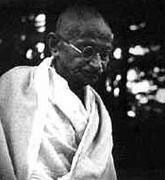
"Generations to come will scarce believe that such a one as this walked the earth in flesh and blood."
— Albert Einstein about Gandhi
(Mohandas Karamchand) Gandhi was born on October 2, 1869 in Porbandar, India. He became one of the most respected spiritual and political leaders of the 1900's. Gandhi helped free the Indian people from British rule through nonviolent resistance, and is honored by his people as the father of the Indian Nation. The Indian people called Gandhi Mahatma, meaning Great Soul.
At age 13 Gandhi married Kasturba, a 12 year old girl. The marriage was arranged by their parents. The Gandhis had four children. Gandhi studied law in London and returned to India in 1891 to practice. In 1893 he took on a one year contract to do legal work in South Africa. At the time South Africa was controlled by the British. When he attempted to claim his rights as a British subject he was abused, and soon saw that all Indians suffered similar treatment. Gandhi stayed in South Africa for 21 years working to secure rights for Indian people. He developed a method of direct social action based upon the principles courage, nonviolence and truth called Satyagraha. He believed that the way people behave is more important than what they achieve. Satyagraha promoted nonviolence and civil disobedience as the most appropriate methods for obtaining political and social goals.
In 1915 Gandhi returned to India. Within 15 years he became the leader of the Indian nationalist movement. Using the tenets of Satyagraha he lead the campaign for Indian independence from Britain. Gandhi was arrested many times by the British for his activities in South Africa and India. He believed it was honorable to go to jail for a just cause. Altogether he spent seven years in prison for his political activities. More than once Gandhi used fasting to impress upon others the need to be nonviolent.
India was granted independence in 1947, and partitioned into India and Pakistan. Rioting between Hindus and Muslims followed. Gandhi had been an advocate for a united India where Hindus and Muslims lived together in peace. On January 13, 1948, at the age of 78, he began a fast with the purpose of stopping the bloodshed. After 5 days the opposing leaders pledged to stop the fighting and Gandhi broke his fast. Twelve days later he was assassinated by a Hindu fanatic who opposed his program of tolerance for all creeds and religion. is:
"A "no" uttered from the deepest conviction, is better than a "yes" merely uttered to please, or what is worse, to avoid trouble."
"The things that will destroy us are: politics without principle; pleasure without conscience; wealth without work; knowledge without character; business without morality; science without humanity, and worship without sacrifice.."
Robert J. McKain
I couldn't find a whole lot on this guy, but his words are powerful.
"A major part of successful living, lies in the ability to put first things first. Indeed . . . the reason most major goals are not achieved, is that we spend our time doing second things first."
"There is no achievement without goals."
"The common conception is that motivation leads to action, but the reverse is true -- action precedes motivation. You have to "prime the pump" and get the juice flowing, which motivates you to work on your goals. Getting momentum going is the most difficult part of the job, and often taking the first step is enough to prompt you to make the best of your day. "
Ralph Waldo Emerson
1803-1882

Ralph Waldo Emerson, whose original profession and calling was as a Unitarian minister, left the ministry to pursue a career in writing and public speaking. He became one of America's best known and best loved 19th century figures.
"Nothing can bring you peace but yourself. Nothing can bring you peace but the triumph of principles."
"We aim above the mark to hit the mark."
Deepak Chopra, MD
1947-
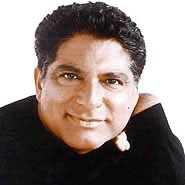
Awakening the Wisdom Within You
Deepak Chopra attended the All India Institute of Medical Sciences and embarked on a career in western medicine. After graduating in 1968, he interned at a New Jersey hospital, trained for several more years at the Lahey Clinic and the University of Virginia Hospital and became board-certified in internal medicine and endocrinology. Hetaught at Tufts and Boston University Schools of Medicine, became the chief of staff at the New England Memorial Hospital and established a large private practice. However, during this time, despite his apparent success, he noticed a growing lack of fulfillment(exacerbated by his unhealthy lifestyle which boasted smoking a pack of cigarettes a day and heavy drinking to calm his nerves) and the nagging question,"Am I doing all that I can for my patients?" (1)These doubts led him to Ayurveda, the ancient science of healing from India. Dr. Chopra immediately realized that here was a system of health care that actually treated the whole person; a system whose guiding principle is that the mind exerts the deepest influence on the body.
"I'm obsessed with the infinite possiblities that are contained within the human potential, that the human being is literally a field of pure potentiality. I am fascinated by the fact that almost everything we see around us, from fax machines to jet planes, is literally a manifestation of human consciousness. And yet, with all thisamazing potential, most humans are not happy. Therefore, I am obsessed with the idea of helping to unfold the full range of human potential and self-knowledge. I want to make it available to as many people as possible and I want a day to come when the study of self-knowledge becomes an integral part of the educational system...then perhaps we will see a world of peace, harmony, laughter, and love."
Chopra's Ten Keys to Happiness
-
Listen to your body's wisdom.
-
Live in the present, for it is the only moment you have.
-
Take time to be silent, to meditate.
-
Relinquish your need for external approval.
-
When you find yourself reacting with anger or opposition to any person or circumstance,
realize that you are only struggling with yourself. -
Know that the world "out there" reflects your reality "in here."
-
Shed the burden of judgement.
-
Don't contaminate your body with toxins, either food, drink, or toxic emotions.
-
Replace fear-motivated behavior with love-motivated behavior.
-
Understand that the physical world is just a mirror of a deeper intelligence.
In Journey Into Healing: Awakening the Wisdom Within You , Chopra offers some inspiring thoughts which he believes will help the reader find peace within oneself, with the objective, once again, that what one thinks and feels can influence one's health.
-
When the mind is peaceful, inner energies wake up and work miracles for us.
-
The use of love is to heal.
-
Happiness radiates like the fragrance from a flower and draws all good things toward you.
-
Healthy people live in the present.
-
An intimate relationship allows you to be yourself.
-
Accept what comes to you totally and completely.
-
When life is full, it is only love, and when awareness isfull, it brings only love.
-
Your mind gives you control.
-
Health is not just the absence of disease, it is an inner joyfullness.
-
Enchantment is our natural state.
-
Attend to your own inner health and well being.
-
Allow your love to nourish yourself as well as others.
Success
in life,
according to Chopra, can be defined as the continued expansion of happiness
and the progressive realization of worthy goals. In his book,
The Seven
Spiritual Laws of Success,
- Law of Pure Potentiality
- Law of Giving
- Law of Karma or Cause and Effect
- Law of Least Effort
- Law of Intention and Desire
- Law of Detachment
- Law of Dharma or Purpose in Life
Robert Perala
1955-
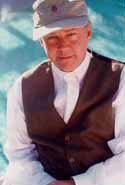
An Incredible Story of Destiny
Robert Perala has come to be a well known writer of New Age philosophy. He claims to have been visited by beings from another dimension, or planet, because he tried something he read in a book once by J. Allen Hynek, when he was 22. It said that your thoughts carry on throughout infinity, and that they have a reality of their own, mingling with everyone else's thoughts. He thought about what it would be like to meet aliens from another planet, and apparently, someone was listening. He was told of many mysterious things, such as the fact that he was here from another place, to help people understand the mysteries of the universe. His book, "The Divine Blueprint," is intriguing and very well written. It brings every mystery together, shining a warm flashlight on some of the darker areas of the unknown, with a message from another place, that reality as we know it, is about to change. It is already in progress according to other aliens called Pleidians whom are in contact with not only Billy Meyers from Switzerland, but also Robert Perala from California.
"The following day, I showed the charts to an RN friend, "Here, what do you make of this?" I asked.
She studied the charts for a full minute, her brow deeply furrowed as she tried to make sense of it. She turned the paper sideways and upside down, cocking her head to look from different angles. "I don't get it." she finally said. "It's tremendously detailed. Where did you get this? Which hospital did it? What equipment did they use?"
"A friend of mine drew it."
"What do you mean, a friend drew it? By hand? That's impossible. This was done by a graph plotter."
"Yes, by hand. And with his eyes closed!"
"Who is he? And where does he practice?" she asked.
"As far as I know, he has no medical training at all."
"No . . . it's just not possible. No one could've drawn this by hand."
Drunvalo Melchizedek
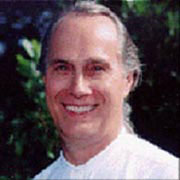
Advanced Spiritual Being
Drunvalo is a big-hearted, gentle man who "walked into" his adult physical body in 1972 and who retains full memory through different lifetimes and varying dimensions of consciousness. He is utterly love. His stories are remarkable. He is either from another planet, or he's just a nice, crazy guy. He is an accomplished scientist, physicist, inventor, healer and teacher. His main purpose in coming to our 3-D world at this time is to help Earth's people to make a smooth transition through the upcoming Shift of the Ages.
He feels the most important work "is to remind us about our MerKaBa, the powerful etheric fields that exist around each of our bodies, which have been in a dormant state since the fall of Atlantis," which occurred approximately 13,000 years ago. It's a vehicle that we all have. The MerKaBa is activated through an ancient way of breathing and meditation originally taught in the Egyptian Mystery School. He says that they saw a specific light in the 18th Dynasty called Mer. It was seen as two counter rotating fields of light spinning in the same place, which are generated under certain breathing patterns. Ka refers to the individual spirit, and Ba refers to the spirit's interpretation of its particular reality. MerKaVah in Hebrew means chariot. Apparently, you can travel into other dimensions with this personal vehicle. Maybe I'll try it someday. It involves finding a quiet place, sitting cross legged, then breathing very slowly. You need to think of certain thoughts for each breath. One is love for everything on the planet, the next, a certain number, the next, something else. It also involves touching each finger to your thumb for each breath. After this he says that your "higher self" will decide whether or not your vehicle can be activated at this time.
Drunvalo and his facilitators teach the acceleration of perfect health, well-being and spiritual transformation through the activation of the MerKaBa, resulting in deeper contact with the Higher Self and giving "unparalleled protection" as Earth goes through its changes, as well as strengthening all aspects of one's life.
He is in touch with the dolphins and whales, and says that they are from another planet. I know this all sounds crazy, but read on . . .
"While in Vancouver, my wife and I decided we wanted to know about meditation, so we started studying with a Hindu teacher who lived in the area. We were very serious in wanting to understand what meditation was about. We had made white silk robes with hoods and were very serious about this new endeavor we had begun.
Then, one day, after practicing meditation for about four or five months, two tall angels about ten feet high appeared in our room! They were right there.
One was green and one was purple. We could see through their transparent bodies, but they were definitely there. We did not expect this appearance to take place. We were just following the instructions that our Hindu teacher was giving us. I don't believe he fully understood as he kept asking us many questions and he didn't seem to understand either. From that moment on, my life was never the same. It wasn't even close.
The first words the angels said were, "We are you." I had no idea what they meant. I said, "You're me?" Then, slowly they began to teach me various things about myself and the world, and about the nature of consciousness . . . until finally my heart just completely opened to them. I could feel tremendous love from them which totally changed my life.
Over a period of many years, they led me to about seventy different teachers. They would actually tell me the address and the phone number of the teacher I was to go see. They would tell me either to call first or just show up at his or her house. So I would do this - and it would always be the right person! Then I would be instructed to stay with that person for a certain length of time.
Sometimes, right in the middle of a particular teaching, the angels would say, "Okay, you're done. Leave." I remember when they sent me to Ram Dass. I hung out in his house for about three days wondering what the heck I was doing there; then one day I went to touch him on the shoulder to say something and I got a zap that practically knocked me on the floor. And that was it - the angels said, "That's it. "You can leave now." And I said, "Okay." Ram Dass and I became friends, but whatever I was supposed to learn from him was over within that one second.
The teachings of Neem Karoli Baba, Ram Dass's teacher, are very important to me. It was his belief that "the best form to see God is in every form". I've also been exposed to Yogananda's work and cherish who he was. And later we'll be talking about Sri Yukteswar and some of his work. I've been intensely involved in almost all the major religions. I've resisted the Sikhs, because I do not believe that military preparation is necessary, but I've studied and practiced almost all the rest of them, Muslim, Jewish, Christian, Hindu, Tibetan Buddhist. I've deeply studied Taoism & Sufism - spent eleven years with Sufism. Through all this, the most powerful teachers for me, however, have been the Native American Indians. It was the Indians who opened the doorway for all my spiritual growth to take place. They've been a very powerful influence in my life.
All the world's religions are speaking of the same Reality. They have different words, different concepts and ideas, but there's really only one Reality, and there's only one Spirit moving through all life. There might be different techniques to get there, but there's only what is real, and when you're there you know it. Whatever you want to call it - you can give it different names - it's all the same thing.."
Johann Wolfgang Von Goethe
1749-1832
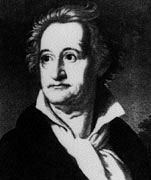
"Every man has only enough strength to complete those assignments that he is fully convinced are important."
"A
distracted existence leads us to no goal. "
"Difficulties increase the nearer we approach the goal. "
"A clever man commits no minor blunders.
"Age does not make us childish, as some say; it finds us true children."
Architecture is frozen music."
"Beauty is everywhere a welcome guest. "
"Before you can do something you must first be something. "
"Behavior is a mirror in which every one displays his own image. "
"By nature we have no defect that could not become a strength, no strength that could not become a defect."
"Character develops itself in the stream of life."
"Daring ideas are like chessmen moved forward. They may be beaten, but they may start a winning game."
"Death is a commingling of eternity with time; in the death of a good man, eternity is seen looking through time."
"Each has his own happiness in his hands, as the artist handles the rude clay he seeks to reshape it into a figure; yet it is the same with this art as with all others: only the capacity for it is innate; the art itself must be learned and painstakingly practiced."
"Fresh activity is the only means of overcoming adversity."
"From inaccessible mountain range by way of desert untrod by human foot to the ends of the unknown seas, the breath of the everlasting creative spirit is felt, rejoicing over every speck of dust that hearkens to it and lives. "
"He who does not expect a million readers should not write a line."
" He who possesses art and science has religion; he who does not possess them, needs religion."
Sophocles
480 BC-404 BC

The second of the three great Greek writers of tragic drama during the 5th century BC was Sophocles. Of the other two, Aeschylus preceded him, and Euripides was his successor. Sophocles is believed to have written 123 dramas, but only seven have survived. The best known is 'Oedipus Rex' (or, Oedipus the King). The others are: 'Electra', 'Antigone', 'Trachinian Women', 'Ajax', 'Philoctetes', and 'Oedipus at Colonus'. Fragments of lost plays and poems also exist.
"We must wait until the evening to see how splendid the day has been."
"Heaven never helps the men who will not act."
"If anyone counts upon one day ahead or even more, he does not think. For there can be no tomorrow until we have safely passes the day that is with us still."
"Kindness is ever the begetter of kindness."
"Nobody likes the bringer of bad news."
"Nobody loves life like him that's growing old."
"One word frees us of all the weight and pain in life. That word is love."
"There are many wonderful things, but none is more wonderful than man."
"There is point beyond which even justice becomes unjust."
Maya Angelou
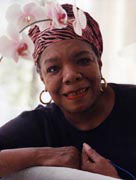
(Marguerita Johnson Angelos) (born 1928), African American poet, playwright, performer, composer, and author of candid autobiographical works, born in St. Louis, Mo.; encouraged to write by James Baldwin and other professionals who heard her stories of rough rural life with her storekeeper-grandmother in segregated Arkansas; administrator, University of Ghana's School of Music and Drama, 1963-66; popular autobiographies, 'I Know Why the Caged Bird Sings' (1970), chronicle of life up to age 16 and birth of son, and 'Gather Together in My Name' (1974), 'Singin' and Swingin' and Gettin' Merry Like Christmas' (1976); 'All God's Children Need Traveling Shoes' (1986) describes her African sojourn; 'I Shall Not Be Moved' (1990).:
"Here, root yourselves beside me,
I am the Tree planted by the river,
Which will not be moved,
I, the Rock, I, the River, I, the Tree,
I am yours — your passages have been paid.
Lift your faces, you have a piercing need,
For this bright morning dawning for you."